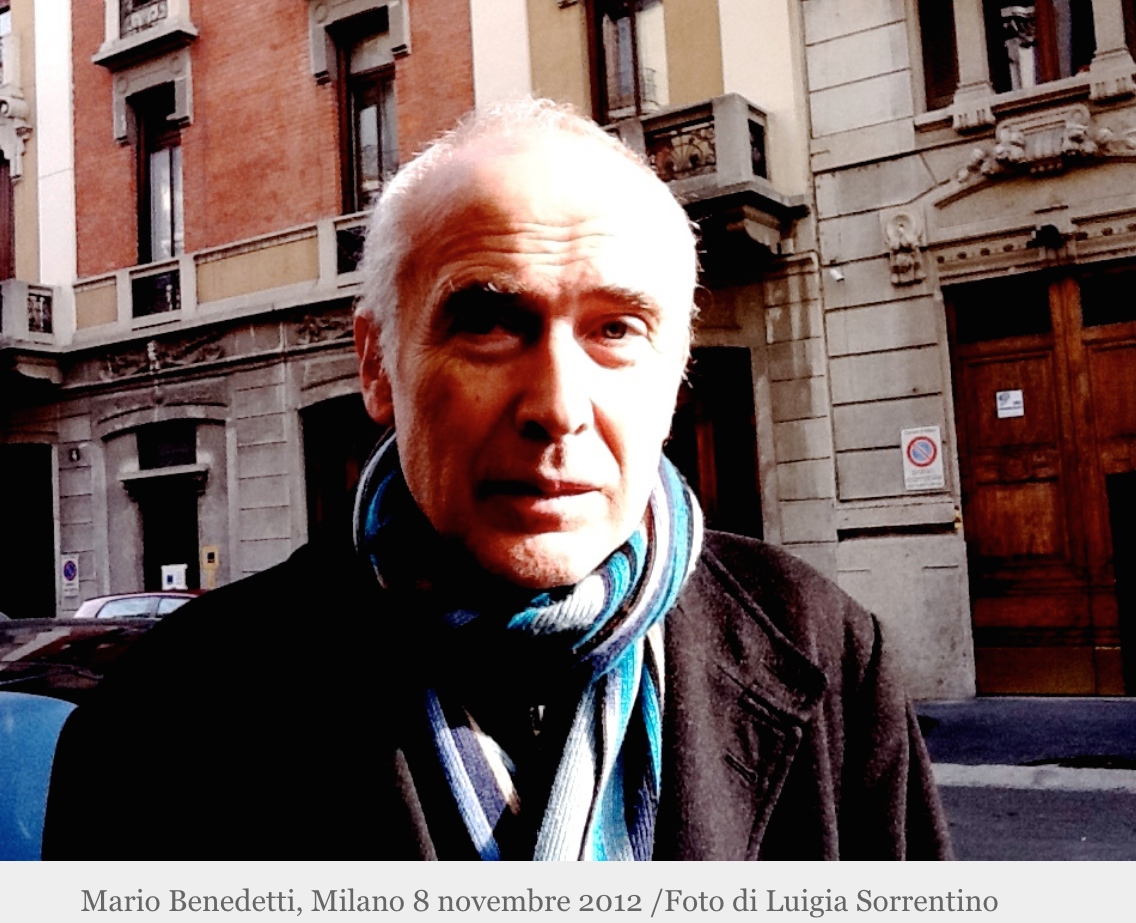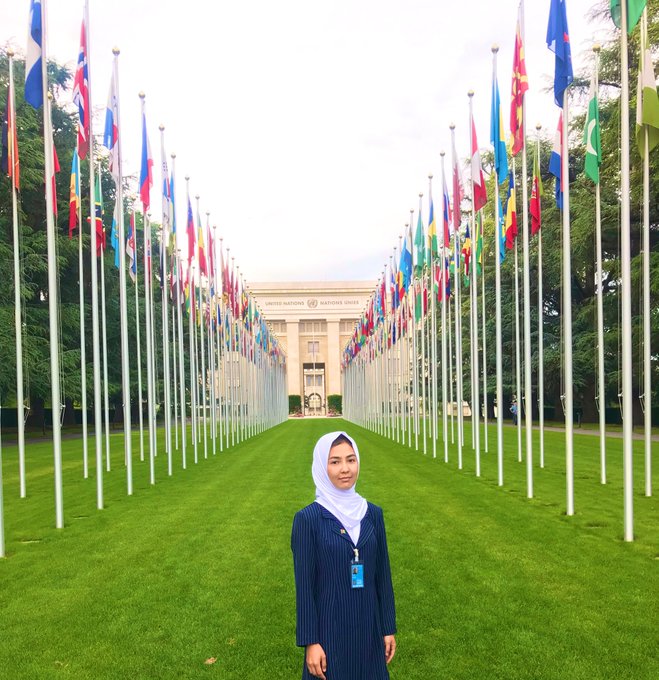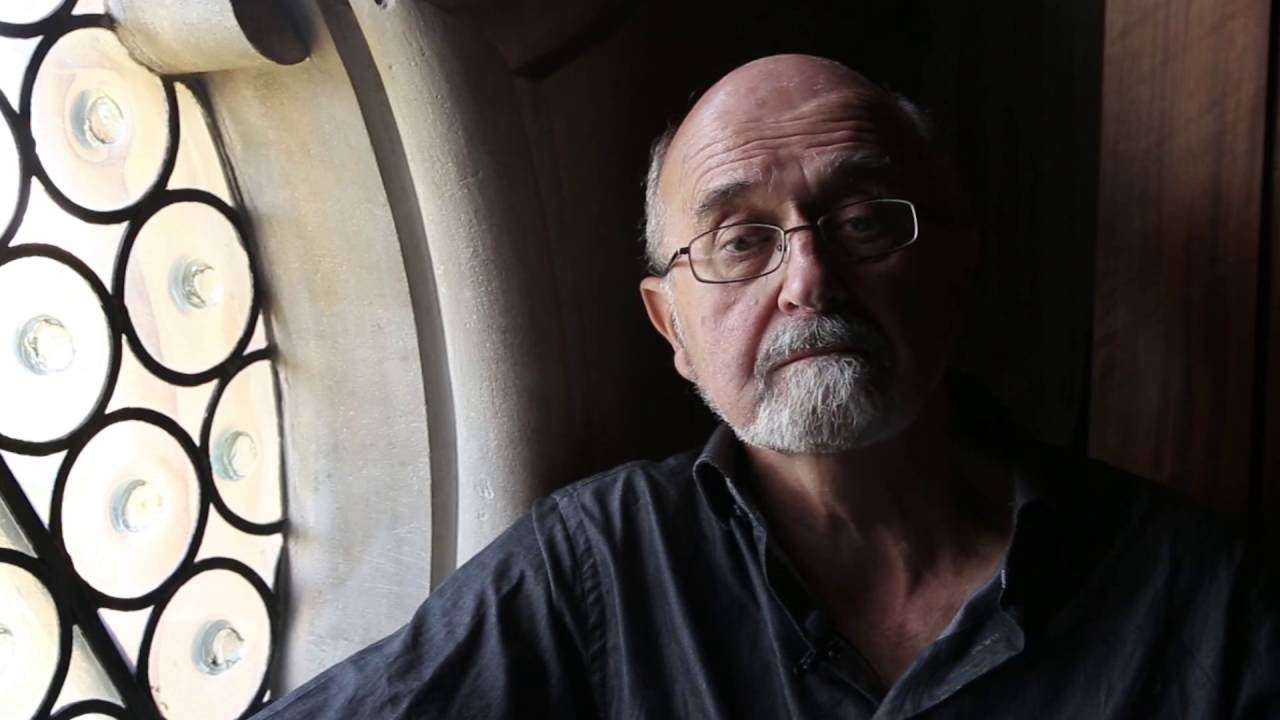
A due mesi dalla scomparsa di Mario Benedetti, poeta italiano, pubblichiamo alcune poesie di Benedetti tradotte in inglese da Roberto Binetti.
____
Da Moriremo guardati (1994)
Quando s’incatina il cielo
che non è più fermo.
Mi perde la tranquilla tersità
già dell’estate.
Più non si sfugge
dalle vie calde di portici.
Al refrigerio murato
del fingersi sovrani
più non riporta
l’incarto rotto del pensiero.
When the sky’s bulging
to the point that is no longer still.
The calm terseness gets me lost
of the late summer.
No longer one could slip away
from the hot lanes of the colonnades.
No longer the cracked wrapping
of thought recalls
the walled relief
from faking regality.
Da Umana gloria (2004)
È stato un grande sogno vivere
e vero sempre, doloroso e di gioia.
Sono venuti per il nostro riso,
per il pianto contro il tavolo e contro il lavoro nel campo.
Sono venuti per guardarci, ecco la meraviglia:
quello è un uomo, quelli sono tutti degli uomini.
Era l’ago per le sporte di paglia l’occhio limpido,
il ginocchio che premeva sull’erba
nella stampa con il bambino disegnato chiaro in un bel giorno,
il babbo morto, liscio e chiaro
come una piastrella pulita, come la mela nella guantiera.
Era arrivato un povero dalle sponde dei boschi e dietro del cielo
con le storie dei poveri che venivano sulle panche,
e io lo guardavo come potrebbero essere questi palazzi
con addosso i muri strappati delle case che non ci sono.
To live was a great dream
and real, always, painful and full of joy.
They came for our laughter,
for our tears burst against the table and the work in the fields.
They came to stare at us, here’s the miracle:
that is a man, those are all men.
He was the needle for the straw bags, the clear eye,
the knee pressing on the grass
in the etching with the clearly-drawn child in a clear day,
the dead father, smooth and clear
like a clean tile, an apple in a glove-box.
A poor man arrived from the woods’ banks and beneath the sky
with stories from other poor men that used to amass over the benches
and I was staring at him as I would stare at these buildings
with the ripped walls of the houses that do not stand anymore. Continua a leggere




